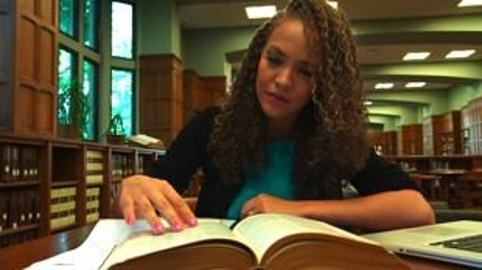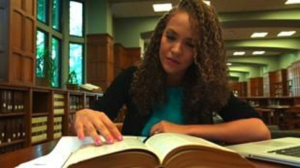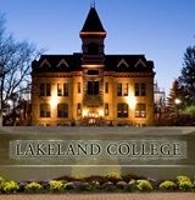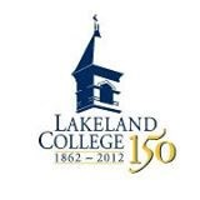
Top 10 College Application Mistakes
Senior year is hectic, but don’t let that affect the quality of your college applications. Take your time, pay attention to detail and plan ahead so you can meet the deadlines. Following are some of the top responses from counselors and admissions staff who shared the most common mistakes on college applications.
- Misspellings and grammatical errors—This is a big pet peeve of admissions people. Misspellings on something as important as the application shows that either you don’t care or you aren’t good at spelling. Some students even misspell their intended major. But don’t stop with a spell check. Proofread for grammatical errors, too.
- Applying online, but the application isn’t actually submitted—If you apply online, you should receive confirmation that the application has been received.
- Forgotten signatures—Make sure you sign and date the form. Often students overlook that part of the form if it’s on the back. Check that all spaces are completed.
- Not reading carefully—For example, if the form asks what County you live in, don’t misread it as Country and write United States.
- Listing extracurricular activities that aren’t—Those that make the list include sports, the arts, formal organizations and volunteer work. Talking on the phone and hanging out with friends don’t make the cut. Make sure your activity information is accurate. Colleges may check with your high school.
- Not telling your school counselor where you’ve applied—Let your counselor know which colleges you’re applying to, and ask him or her to review your high school transcript before sending it to colleges. Sometimes transcripts have errors.
- Writing illegibly—First impressions count, so take your time and use your best handwriting. It will make a better impression.
- Using an email address that friends might laugh about, but colleges won’t—Select a professional email address. Keep your fun address for friends, but select an address using your name for college admissions.
- Not checking your email regularly—If you’ve given an email address, the college will use it. You don’t want to miss out on anything because you didn’t read your email.
- Letting Mom or Dad help you fill out your application— Admissions people know if your parents help, whether you have two different styles of handwriting or your admissions essay sounds more like a 45- year-old than a 17-year-old. It’s fine to get advice, but do the work yourself.
Message From The Dean – Bob Fulcomer
Due to our continuing growth in the College Planning Program, we have to move our operation to a new facility to accommodate the current expansion. We are excited to announce to you that we will be moving to a new location beginning on October 31st 2013. Our new HIFE Headquarters address will be:
8301 East Prentice Avenue,
Suite #312, Greenwood
Village, Colorado 80111.
Our operations will be down starting October 31st at 5pm CST and will be back up on Monday, November 4th.
How I Earned $500,000 In Scholarships
 She wasn’t a top student or star athlete, but Kristina Ellis, 26, managed to earn half a million dollars in college scholarships by the time she graduated high school in 2005. She says you can, too.
She wasn’t a top student or star athlete, but Kristina Ellis, 26, managed to earn half a million dollars in college scholarships by the time she graduated high school in 2005. She says you can, too.
“The first day of freshman year in high school my mom sat me down and basically said, ‘Kristina, I love and believe in you, but there’s no way I can support you financially once you graduate from high school, so you’re going to have to figure out your own way to pay for college.'” Ellis recounts.
That’s tall the then-13-year old needed to hear to motivate her to find a way to afford her own future. Skipping college was not an option — nor was taking out thousands in student loans. Ellis was determined to go for free, and did she ever.
She scored $500,000 in free money that sent her to the prestigious Vanderbilt University for her Bachelor’s degree. With the remaining money, she went on to purue a Master’s and is now setting her sights on a Ph.D.
“I wasn’t a perfect student. I wasn’t a star athlete, so I felt really inadequate when I started the [scholarship application] process,”
says Ellis. But she made it happen and is sharing her secrets in her new book, “Confessions ofaScholarship Winner
It’s Never Too Early
Ellis’ top lesson is to start preparing early — way early. Even though she couldn’t apply yet for many scholarships, she began learning everything she could about the scholarship process in just the ninth grade.
Map Out a Plan to Impress
Even if a student’s only interest is, say, video games, it’s important to take a leadership role in that hobby by starting a club, creating a blog or building your own app to impress scholarship committees.
I learned that judges are looking for students that are ultimately going to go on to make a difference and make an impact on the world,” says Ellis. “There are a lot of different ways you can show that.”
Ellis spent her four years in high school improving her grades and pursuing her passions, like taking over as coach of her old gymnastics team, growing it from two girls to 45 girls. She also created impressive opportunities for herself. “In high school I started a shoe drive where we shipped discarded shoes overseas.
That actually only took a few hours a week [to organize] but helped me stand out in my scholarship applications,” she says.
On top of everything, she worked her way to being crowned Miss Indiana Teen USA.
There was a $995 entry fee, so I held multiple car washes, sold raffle tickets and candy bars, and worked in the local watermelon fields [to pay for it].” These experiences lent themselves to award-winning scholarship essays.
Cast a Wide Net
And with those essays she cast a wide application net. Ellis’s top resources were “The Ultimate Scholarship Book,” the “Kaplan Scholarships,” book, Fastweb.com and Scholarships.com.
In her senior year she applied for more than 40 scholarships, winning half of them, including the prestigious Coca-Cola and Gates Millennium Scholar awards. “Applying for a scholarship can be like the best job you ever had. If you win $10,000 and it took five hours to apply, that’s a $2,000-an-hour job,” she calculates.
It’s Never Too Late
For seniors who may be getting a late start to the application process, Ellis says to think back to what they’ve already achieved during high school, whether it’s working a job for four years, helping to clean up the neighborhood after a storm or volunteering in the community. Those are the very activities that can shine in a scholarship application. And for the remaining time you have in school, start thinking of ways you can continue to build your resume.” Get involved in clubs and organizations and try to find little ways you can strengthen your application,” she says.
Featured University – Lakeland College
Mission
Lakeland College, a liberal arts college related to the United Church of Christ, is committed to educating men and women of diverse backgrounds enabling them to earn a living, to make ethical decisions, and to lead purposeful and fulfilling lives distinguished by intellectual, moral and spiritual growth.
Values
Lakeland is an educational community where students and f aculty share academic goals and join in a common intellectual quest. Teaching and learning, the search for knowledge and understanding, and the critical examination of ideas, values and actions are the central activities of the college.
Lakeland is a just community where the sacredness of each person is honored and where courtesy and honesty are practiced. The college engages in the humane enterprise of educating by helping students make a connection between what they learn and how they live.
Lakeland is a covenantal community, affirming with the United Church of Christ the centrality of religious truth and the promise of Jesus that “one who seeks, finds.” The concern for humankind exemplified in the life of Christ is reflected in the core curriculum of the college. Lakeland is a global community, drawing students of varied ages, religious backgrounds, and cultural traditions, from areas around the world, building a community out of the rich diversity of its members in a climate of civility, respect, and free expression.
 QUICK FACTS
QUICK FACTS
- Enrollment: 3,780
- 30+ majors and minors
- 16:1 student teacher ratio
- Average annual financial aid package $22,950
Source: www.lakeland.edu
Roth IRA May Be Used For College Savings
Presented By – Dave Bromeier, CFEd®, ChFC®, Investment Advisor
Roth Individual Retirement Account (IRA) is one of the options available for setting college money aside. Roth IRAs are a good option for parents interested in opening up a college savings account. They are an even better idea for those interested in setting aside money for both college and retirement.
 Roth IRAs are not tax- deductible and they do grow tax-free. Roth IRA may also be withdrawn tax-free under certain conditions. Once an account is opened for atleast 5 years, the deposited sum may be withdrawn without penalty or tax charges. However, any withdrawal from the earnings will be taxed. Any withdrawals prior to the 5 years will be penalized by 10% unless they are used for qualifying expenses
Roth IRAs are not tax- deductible and they do grow tax-free. Roth IRA may also be withdrawn tax-free under certain conditions. Once an account is opened for atleast 5 years, the deposited sum may be withdrawn without penalty or tax charges. However, any withdrawal from the earnings will be taxed. Any withdrawals prior to the 5 years will be penalized by 10% unless they are used for qualifying expenses
Unlike a 529 Plan or a Coverdell Savings Account, the Roth IRA money may be used for more than just for education – after 5 years. Once a student graduates, they can also take advantage of the first-time homeowner rule to take out tax-free. Money from the Roth IRA can be withdrawn, tax and penalty free, before the age of 59 ½ if it is to be used for education or for the purchase of a first home.
Roth IRAs are not counted among parental assets on the FAFSA and if you withdraw contributions, they won’t be counted as income either. A parent-owned Roth IRA and withdrawal of only contributions will have zero effect on financial aid eligibility.
Preparing For College As A High School Senior
Now that you are in your senior year and your college days are just around the corner. By now, you should have started with the college application process. If you have not done so, there is still time, but you’ll have to move quickly. Here are a few steps to remember:
It’s very important that you ask your teachers, your employers, your coaches, your pastor or a credible local leader in your community for a good letter of recommendation. 
Be sure you ask someone who knows you personally and make sure you give them sufficient time to prepare a good letter for you. This will be used for both college and scholarship applications. The colleges or universities will have your grades, but they will be interested in knowing you personally.
Colleges will require that you take the ACT and/or SAT therefore it is imperative that you register for both exams early on. The ACT exam is normally scheduled between September and June and offered around 6 times a year while the SAT is offered once a month between October and June. You will need to register at least one month before the exam.
The most important part of the college application process is submitting all the application materials required for each school. Be sure to print clearly on each application and pay close attention to your spelling and grammar. Your HIFE CPP Coach can assist you in verifying your applications. Make an effort in personalizing your essays to the school of your choice. Try to provide reasons for your interest in attending each school which will show that you have put some effort in doing your research. Early approval deadlines are usually in the first couple of weeks in November. Normal deadlines are usually between January and February therefore it is vital that you submit your application as early as possible. By doing so, you have a better chance of getting in if all of your information is in before the deadlines.Continue to submit applications for scholarships. Your HIFE CPP Coach will provide you a minimum of 10 scholarships per month.
The deadline for FAFSA varies by each state and is usually in January or February. Try to submit it as close to January 1st as possible using the on- line website at www.fafsa.ed.gov. You will need to have a copy of your parent’s tax returns before you begin this process.
Most colleges will provide you with their decisions as early as May. Once you have received the responses from the colleges, be sure to consider all of your options carefully. Your HIFE CPP Coach can provide you with guidance during this process.
Coach’s Corner
If you are entering your junior or senior year, you should have signed up to take your ACT and/or SAT by now. It is advisable that you try to take these exams during the fall of your high school junior year. In the event your results is not favorable, you may elect to retake it in the spring of your junior year or the latest during the fall of your senior year.



